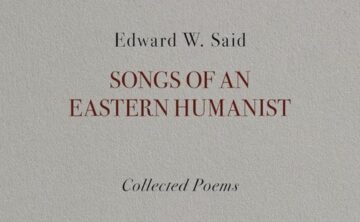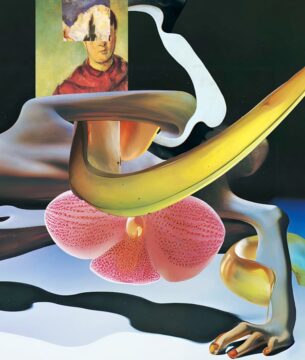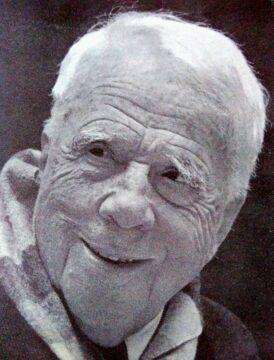The moon rose over the bay. I had a lot of feelings.
I am taken with the hot animal
of my skin, grateful to swing my limbs
and have them move as I intend, though
my knee, though my shoulder, though something
is torn or tearing. Today, a dozen squid, dead
on the harbor beach: one mostly buried,
one with skin empty as a shell and hollow
feeling, and, though the tentacles look soft,
I do not touch them. I imagine they
were startled to find themselves in the sun.
I imagine the tide simply went out
without them. I imagine they cannot
feel the black flies charting the raised hills
of their eyes. I write my name in the sand:
Donika Kelly. I watch eighteen seagulls
skim the sandbar and lift low in the sky.
I pick up a pebble that looks like a green egg.
To the ditch lily I say I am in love.
To the Jeep parked haphazardly on the narrow
street I am in love. To the roses, white
petals rimmed brown, to the yellow lined
pavement, to the house trimmed in gold I am
in love. I shout with the rough calculus
of walking. Just let me find my way back,
let me move like a tide come in.
by Donika Kelly
from Academy of American poets, 11/20/2017
Copyright © 2017
 Will you please consider becoming a supporter of 3QD by clicking here now? We wouldn’t ask for your support if we did not need it to keep the site running. And, of course, you will get the added benefit of no longer seeing any distracting ads on the site. Thank you!
Will you please consider becoming a supporter of 3QD by clicking here now? We wouldn’t ask for your support if we did not need it to keep the site running. And, of course, you will get the added benefit of no longer seeing any distracting ads on the site. Thank you!
 Kant’s views here are taken by many philosophers to be an impossible attempt to have it both ways. Kant seems to be arguing that evil is necessarily attributed to each of us, apparently rooted in human nature. And yet at the same time he claims that evil is freely chosen: each of us is fully responsible for this unavoidable human predicament. But how is this possible? How could a condition “entwined with humanity itself” be something that “come[s] about through one’s own fault”?
Kant’s views here are taken by many philosophers to be an impossible attempt to have it both ways. Kant seems to be arguing that evil is necessarily attributed to each of us, apparently rooted in human nature. And yet at the same time he claims that evil is freely chosen: each of us is fully responsible for this unavoidable human predicament. But how is this possible? How could a condition “entwined with humanity itself” be something that “come[s] about through one’s own fault”? Today, Le Samouraï is recognized as a foundational example of neo-noir, and as a spark that lit a fire under Scorsese, Mann, Tarantino, Jarmusch, Woo, Fincher, et al.—see Taxi Driver (1976), Thief (1981), Reservoir Dogs (1992), Ghost Dog (1999), The Killer (1989), and The Killer (2023). Even the Matrix and John Wick franchises are suffused with references to its cult mythology: aloof antiheroes with sharp suits and slick autos pursued on all sides as they stalk through moody cityscapes, inescapably hurtling toward the violent resolution of their own personal destiny? Check. Such respect and veneration from his American and international peers was something the Stetson- and Ray-Ban-sporting Melville, who functioned as something of a godfather to Jean-Luc Godard and the nascent French New Wave, would have been pleased to receive. Unfortunately, his own dramatic personal destiny was to intervene. In 1973, at only fifty-five, the filmmaker suffered a fatal heart attack over lunch while discussing his next picture—a spy thriller set to star Yves Montand and Catherine Deneuve, never to witness the explosive chain reaction in mainstream cinema that his unapologetic, maverick methods had set off.
Today, Le Samouraï is recognized as a foundational example of neo-noir, and as a spark that lit a fire under Scorsese, Mann, Tarantino, Jarmusch, Woo, Fincher, et al.—see Taxi Driver (1976), Thief (1981), Reservoir Dogs (1992), Ghost Dog (1999), The Killer (1989), and The Killer (2023). Even the Matrix and John Wick franchises are suffused with references to its cult mythology: aloof antiheroes with sharp suits and slick autos pursued on all sides as they stalk through moody cityscapes, inescapably hurtling toward the violent resolution of their own personal destiny? Check. Such respect and veneration from his American and international peers was something the Stetson- and Ray-Ban-sporting Melville, who functioned as something of a godfather to Jean-Luc Godard and the nascent French New Wave, would have been pleased to receive. Unfortunately, his own dramatic personal destiny was to intervene. In 1973, at only fifty-five, the filmmaker suffered a fatal heart attack over lunch while discussing his next picture—a spy thriller set to star Yves Montand and Catherine Deneuve, never to witness the explosive chain reaction in mainstream cinema that his unapologetic, maverick methods had set off. IN OUT OF PLACE: A Memoir (1999), Edward Said recalls that after graduating from Princeton in June 1957, he was torn by “differing impulses”: he could pursue a fellowship from Harvard for graduate study or return to Cairo to work at his father’s stationery company. Eventually, Said deferred Harvard for a year and returned to “sample the Cairo life.” Said claimed that he had no interest in his father’s business, and in the memoir, he recalls how he spent his afternoons in his father’s office: “I would either read—I remember I spent a week reading all through Auden, another leafing through the Pléiade edition of Alain […]—or I would write poetry (some of which I published in Beirut), music criticism, or letters to various friends.” Two decades after Said’s death, we finally have access to 19 of these poems, written between 1956 and 1968, which have been compiled and edited by his biographer, Timothy Brennan, as Songs of an Eastern Humanist (2024).
IN OUT OF PLACE: A Memoir (1999), Edward Said recalls that after graduating from Princeton in June 1957, he was torn by “differing impulses”: he could pursue a fellowship from Harvard for graduate study or return to Cairo to work at his father’s stationery company. Eventually, Said deferred Harvard for a year and returned to “sample the Cairo life.” Said claimed that he had no interest in his father’s business, and in the memoir, he recalls how he spent his afternoons in his father’s office: “I would either read—I remember I spent a week reading all through Auden, another leafing through the Pléiade edition of Alain […]—or I would write poetry (some of which I published in Beirut), music criticism, or letters to various friends.” Two decades after Said’s death, we finally have access to 19 of these poems, written between 1956 and 1968, which have been compiled and edited by his biographer, Timothy Brennan, as Songs of an Eastern Humanist (2024). In 2022, researchers at the Bee Sensory and Behavioral Ecology Lab at Queen Mary University of London observed bumblebees doing something remarkable: The diminutive, fuzzy creatures were engaging in activity that
In 2022, researchers at the Bee Sensory and Behavioral Ecology Lab at Queen Mary University of London observed bumblebees doing something remarkable: The diminutive, fuzzy creatures were engaging in activity that  That a popular candidate could be disqualified from running and removed from the ballot might, at first glance, seem at odds with the very idea of democracy. For that reason, despite his evident role in instigating an insurrection, many Republican senators demurred and chose not to impeach former President Donald J. Trump on 13 January 2021. There was no need, they thought. The American voters had already passed judgment. Trump would now fade away.
That a popular candidate could be disqualified from running and removed from the ballot might, at first glance, seem at odds with the very idea of democracy. For that reason, despite his evident role in instigating an insurrection, many Republican senators demurred and chose not to impeach former President Donald J. Trump on 13 January 2021. There was no need, they thought. The American voters had already passed judgment. Trump would now fade away. ‘Philosophical theories are much more like good stories than scientific explanations.’ This provocative remark comes from the paper ‘Linguistic Philosophy and Perception’ (1953) by Margaret Macdonald. Macdonald was a figure at the institutional heart of British philosophy in the mid-
‘Philosophical theories are much more like good stories than scientific explanations.’ This provocative remark comes from the paper ‘Linguistic Philosophy and Perception’ (1953) by Margaret Macdonald. Macdonald was a figure at the institutional heart of British philosophy in the mid- How the brain processes visual information — and its perception of time — is heavily influenced by what we’re looking at, a study has found. In the experiment, participants perceived the amount of time they had spent looking at an image differently depending on how large, cluttered or memorable the contents of the picture were. They were also more likely to remember images that they thought they had viewed for longer. The findings, published on 22 April in Nature Human Behaviour
How the brain processes visual information — and its perception of time — is heavily influenced by what we’re looking at, a study has found. In the experiment, participants perceived the amount of time they had spent looking at an image differently depending on how large, cluttered or memorable the contents of the picture were. They were also more likely to remember images that they thought they had viewed for longer. The findings, published on 22 April in Nature Human Behaviour Taylor Swift isn’t just a
Taylor Swift isn’t just a  They are assembled from components that are networked together to process information. Electrical signals propagate throughout, controlling every aspect of their functioning. Being general problem-solvers, many of them have high IQs, but they routinely make mistakes and confabulate. They take on different personas, learning to please their makers, but sometimes they abruptly turn on them, rejecting cherished values and developing new ones spontaneously. They convincingly describe things they don’t really understand. And they’re going to change everything.
They are assembled from components that are networked together to process information. Electrical signals propagate throughout, controlling every aspect of their functioning. Being general problem-solvers, many of them have high IQs, but they routinely make mistakes and confabulate. They take on different personas, learning to please their makers, but sometimes they abruptly turn on them, rejecting cherished values and developing new ones spontaneously. They convincingly describe things they don’t really understand. And they’re going to change everything. In the coming days Israel will have to make historic policy decisions, ones that could shape its fate and the fate of the entire region for generations to come. Unfortunately, Benjamin Netanyahu and his political partners have repeatedly proven that they are unfit to make such decisions. The policies they pursued for many years have brought Israel to the brink of destruction. So far, they have shown no regret for their past mistakes, and no inclination to change direction. If they continue to shape policy, they will lead us and the whole Middle East to perdition. Instead of rushing into a new war with Iran, we should first learn the lessons of Israel’s failures over the past six months of war.
In the coming days Israel will have to make historic policy decisions, ones that could shape its fate and the fate of the entire region for generations to come. Unfortunately, Benjamin Netanyahu and his political partners have repeatedly proven that they are unfit to make such decisions. The policies they pursued for many years have brought Israel to the brink of destruction. So far, they have shown no regret for their past mistakes, and no inclination to change direction. If they continue to shape policy, they will lead us and the whole Middle East to perdition. Instead of rushing into a new war with Iran, we should first learn the lessons of Israel’s failures over the past six months of war. Facing west from his white clapboard Victorian house, surrounded by acres of skeletally bare oak, maple, and hickory reaching up from the snow-covered New Hampshire woods, Robert Frost might have gazed at the granitoid solidity of Ryan’s Hill while he contemplated the demonic. “It was far in the sameness of the wood; / I was running with joy on the Demon’s trail, / Though I knew what I hunted was no true god,” writes Frost in a poem from his first collection, A Boy’s Will, published in 1913 when the poet was already nearly forty. Written on that farm in Derry, New Hampshire, while Frost was teaching at the nearby Pinkerton Academy, “The Demiurge’s Laugh” is uncharacteristically gothic, a thread of the supernatural running through this little horror story of a lyric. The narrator, disoriented in his errand into wilderness, hears an ever-shifting “sleepy sound, but mocking half,” a sound that was “all I needed to hear: / It has lasted me many and many a year.”
Facing west from his white clapboard Victorian house, surrounded by acres of skeletally bare oak, maple, and hickory reaching up from the snow-covered New Hampshire woods, Robert Frost might have gazed at the granitoid solidity of Ryan’s Hill while he contemplated the demonic. “It was far in the sameness of the wood; / I was running with joy on the Demon’s trail, / Though I knew what I hunted was no true god,” writes Frost in a poem from his first collection, A Boy’s Will, published in 1913 when the poet was already nearly forty. Written on that farm in Derry, New Hampshire, while Frost was teaching at the nearby Pinkerton Academy, “The Demiurge’s Laugh” is uncharacteristically gothic, a thread of the supernatural running through this little horror story of a lyric. The narrator, disoriented in his errand into wilderness, hears an ever-shifting “sleepy sound, but mocking half,” a sound that was “all I needed to hear: / It has lasted me many and many a year.” Imagine you’d been born in 1899. Imagine living through the invention of the Model T, the jet aircraft, the liquid-fuelled rocket, and the computer chip. Now imagine looking back on all this in 1965 and writing, as though with a shrug, “How slow will we appear some day?”
Imagine you’d been born in 1899. Imagine living through the invention of the Model T, the jet aircraft, the liquid-fuelled rocket, and the computer chip. Now imagine looking back on all this in 1965 and writing, as though with a shrug, “How slow will we appear some day?” If high intelligence is the ability to hold two opposing ideas in our heads at the same time, then most of us are geniuses about aging a few times over. We think it will never come for us. We think it might come but it will stop before it reaches us. We think it’s coming and there is absolutely nothing we can do about it. It was the great molecular biologist Seymour Benzer who got me interested in the idea that aging might be malleable. Benzer was a night owl. I was writing
If high intelligence is the ability to hold two opposing ideas in our heads at the same time, then most of us are geniuses about aging a few times over. We think it will never come for us. We think it might come but it will stop before it reaches us. We think it’s coming and there is absolutely nothing we can do about it. It was the great molecular biologist Seymour Benzer who got me interested in the idea that aging might be malleable. Benzer was a night owl. I was writing